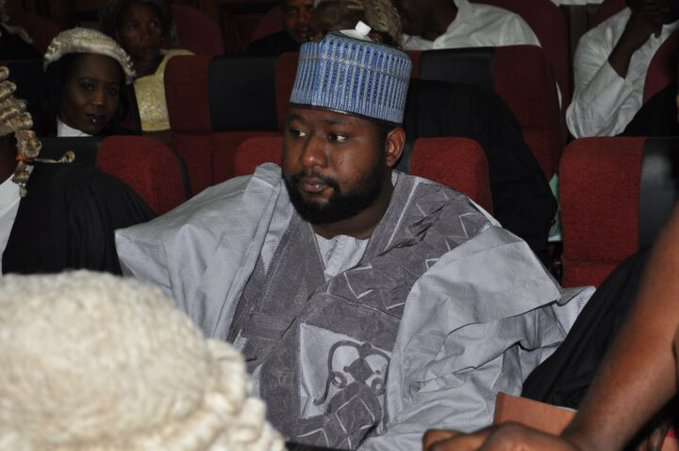The Economic and Financial Crimes Commission, EFCC, has been ordered by the Federal High Court sitting in Abuja, on Tuesday to refund the sum of $60, 000 and N580,000 it seized from an apartment belonging to the son of the Governor of Bauchi State, Bala Mohammed.
The court, in a judgement that was delivered by Justice Nnamdi Dimgba, made the order, after it discharged and acquitted governor Mohammed’s son, Shamsudeen, of a nine-count charge the anti-graft agency preferred against him.
It held that the EFCC failed to prove the charge which bordered on forgery and Shamsudeen’s alleged failure to declare his assets.
Aside from the monies, the court equally directed the Commission to return all other items it took in the course of executing a search warrant on the defendant’s apartment.
EFCC told the court that it had in the course of investigating alleged “unwholesome deals” the Bauchi state governor took part in while he held sway as the Minister of the Federal Capital Territory, arrested his son after it discovered his links with some of the allegations.
It subsequently charged him and four companies with a 20-count charge that involved money laundering.
Following a no-case-submission that was filed by the defendants, the court, in a ruling it delivered on December 13, 2021, struck out 11 counts of the charge, even as it discharged the companies over the absence of a nexus between them and the alleged offence.
However, the court sustained nine counts of the charge which it ordered Shamsudeen to enter his defence to.
In the amended charge marked: FHC/ABJ/CR/252/2016, the EFCC accused the defendant of omitting to include on the assets declaration form he filled out at its office after his arrest, four bank accounts that were traced to him.
The prosecution told the court that the defendant maintained the accounts with Standard Chartered Bank (SCB) in Naira, Pounds Sterling, Euro and United States Dollar currencies.
It further accused him of using forged documents to acquire landed properties.
Meanwhile, in his defence, Shamsudeen told the court that he forgot to include the accounts which he said were operated by his wife, Aisha.
The defendant told the court that he was arrested at a time his parents were outside the country.
He said his arrest and sort of allegations that were thrown at him by operatives of the EFCC, left him in “a state of shock and disarray”, hence the reason he could not remember the four accounts he said were opened for him in 2012 while he was embarking on his Master’s Degree program.
He told the court that he handed over the accounts to his wife, who not only received alerts and emails on them but was also in possession of the ATM cards.
The defendant said he had no reason to hide the accounts since there were no substantial amounts in them, and nor were they used for any fraudulent transaction.
He said he wrote his statement at the EFCC while in a state of confusion after he was intimated and threatened with jail.
Shamsudeen denied the allegation that he knowingly refused to declare his ownership of the four accounts.
Delivering his judgement in the matter, Justice Dimgba said he was convinced that the Prosecution failed to discharge the burden placed on it by the law to prove the case against the defendant, beyond a reasonable doubt.
He held that none of the 11 witnesses the EFCC presented before the court established any criminal case against the defendant to warrant his conviction.
“Reasonable doubts do exist in the Prosecution’s case as made out in the body of this opinion. In a case of this nature, the evidence adduced by the Prosecution must be so strong as to leave only a remote possibility in favour of the accused.
“As the law commands, I am bound to resolve the doubts in favour of the Defence and I so resolve them. In consequence, I find the Defendant as being Not Guilty as charged on all counts 11 to 19, and consequently discharge and acquit the Defendant of all counts as listed in the charge”, the trial judge held.
On the issue of monies the EFCC seized from the defendant’s apartment, the court noted that they were neither tendered before it nor formed any part of the charge.
It noted that the prosecution did not deny that it confiscated the monies and had since retained it in its custody.
Consequently, the court, relying on section 337 (1) of the Administration of Criminal Justice Act, 2015, ordered the EFCC to return the monies to the defendant.

